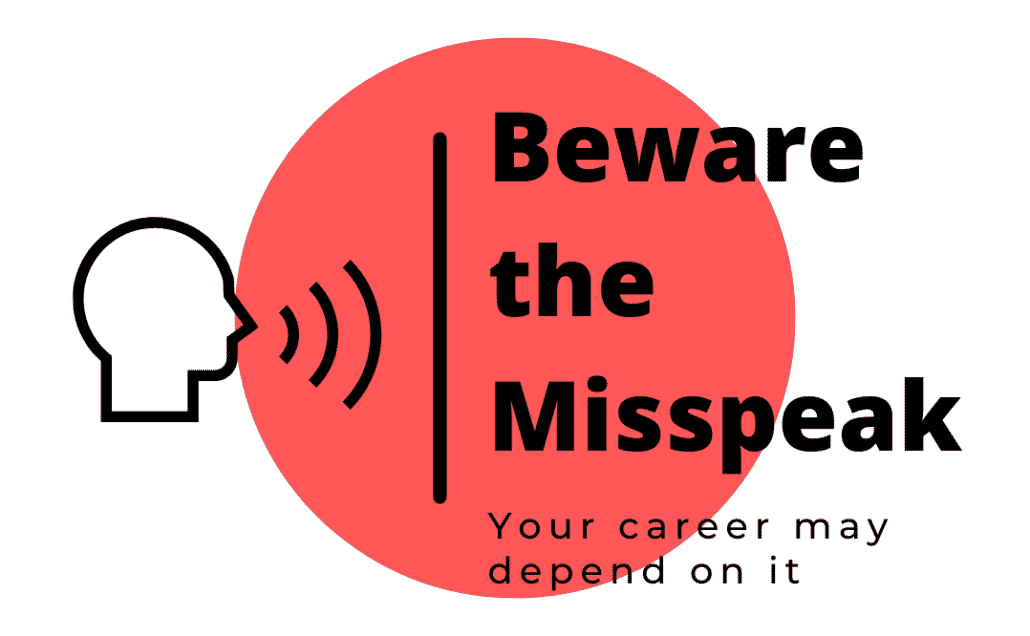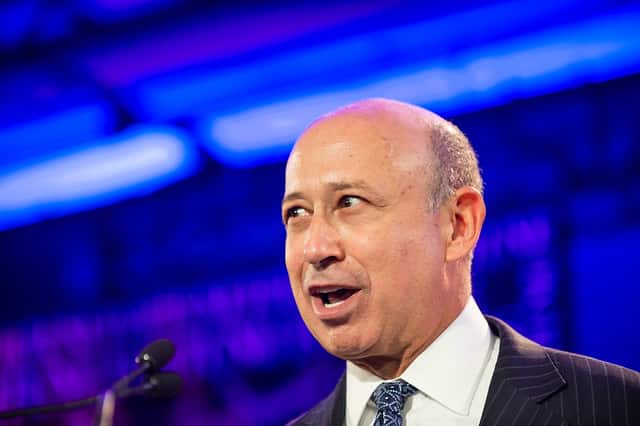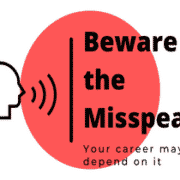It’s So Easy to Misspeak
As a media trainer, one of my roles is to warn people that it is all too easy to misspeak in public life – with very significant consequences.
I have recently been working with a couple of senior leaders from very different backgrounds who both, in my view, greatly underestimated the danger of misspeaking.
One said: ‘I would be very disappointed is someone took something I said out of context’

As I had to explain: the reality is journalists always take things out of context. A journalist’s job is to sift vast amounts of information and find the nugget that is new, significant or interesting. They never report the full context, if they did no one would ever read what was written or listen to what was broadcast.
Many journalists are very careful and ethical about how they do this, and some are less so. Either way, the risk is significant.
As I was under pressure to evidence this risk, I was prompted to pull together a list of misspeaks that had long-lasting consequences for the person who said them. It is far from a comprehensive list. I would love to hear from people who remember other examples of people casually saying something by accident that hit the headlines and caused a storm.
I was a financial journalist and as a trainer, I am often called on by people in the City of London, so top of my list of famous misspeaks is the one made by former Goldman Sachs Chairman and CEO, Lloyd Blankfein. In 2009 Blankfein famously said to a Sunday Times journalist during an interview in his office, ‘We do God’s work here’. The comment was a joke or irony, but that didn’t stop worldwide portrayal of Blankfein as ‘God’s banker’ and someone who thought he had a divine right to make vast amounts of money.
The Daily Mail article from the time can be read here, but there are hundreds if not thousands of references to this online, many of them dated much more recently. And that illustrates the danger, once said never forgotten.

Lloyd Blankfein, Chairman and CEO, The Goldman Sachs Group, Inc. Photograph by Stuart Isett/Fortune Most Powerful Women Summit
More recently, Bank of England governor Andrew Bailey was persuaded, in a BBC interview, to agree that people should moderate their wage demands to help limit inflation. His remarks showed him totally out of touch and immediately prompted journalists to point out that the Governor earns half a million a year. The government was pretty cross with him and swiftly distanced themselves from his comments.
You can read the BBC News article here.
I have previously mentioned in a blog (linked here) the case of HSBC’s Stuart Kirk who last month was unnecessarily highly quotable in a presentation about the increasing pressure being put on investment houses by ESG regulation. One phrase that got particular widespread attention was ‘who cares if Miami is under water in 100 years time’. He also said ‘nut jobs’ were always predicting the end of the world, and always wrong. He was, and I think is, suspended from his job as global head of responsible investing.
You can read the BBC News article here.
Sexism is another area where it is easy to misspeak. Many years ago I did a TV profile on Kevin Roberts, an amazing CEO at Saatchi and Saatchi. A few years later he was asked to leave by the board of the parent company Publicis, over sexist remarks he made in an interview with Business Insider. He suggested women in advertising lacked ambition and were happy to just do great creative work.
I blogged about this here and you can read the Guardian article here.
Then there was the Nobel laureate and honorary professor at University College London, Tim Hunt, who made some bad taste joke about women in science. He was at an academic conference in South Korea when he said:
“Three things happen when they are in the lab: you fall in love with them, they fall in love with you, and when you criticise them they cry.”
Business Insider reported this here.
For me, this was much more offensive than Kevin Robert’s comments. Hunt was 72 at the time and those remarks almost finished his career. Wikipedia tells me he did eventually make a come back to the lecturing circuit but his public humiliation despite an apology was intense.

Heather Wheeler MP, Wikimedia Creative Commons Attribution-Share Alike 4.0 International license
And finally, be careful about speaking negatively about towns or cities. Just this week we had a junior cabinet minister, Heather Wheeler, forced to apologise for describing Birmingham and Blackpool as ‘godawful places’. This one probably won’t affect her career but it did give her the sort of headlines no one wants.
You can read the FT article here.
In all cases, these comments came either during an interview or when journalists were known to be present. Despite agreeing that many of these comments were indicative of attitudes I find distasteful, I have a great deal of sympathy for most of these speakers. The truth is, unless you are trained and experienced in dealing with journalists, it is very easy to misspeak.
- Media Savvy Operators Know How to Place a Quote - May 21, 2024
- The Magic of Performance - May 14, 2024
- Our Top Tips: - May 8, 2024




The danger of misspeaking is why we practice reactive lines to predicted interview questions so rigorously. That way, every response is stress-tested, there’s no thinking up answers on the spot, and the risk of saying something you later live to regret reduces considerably!